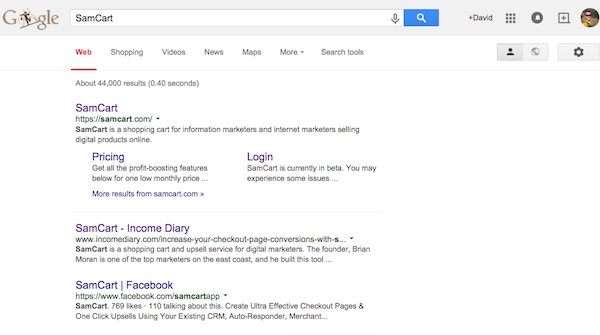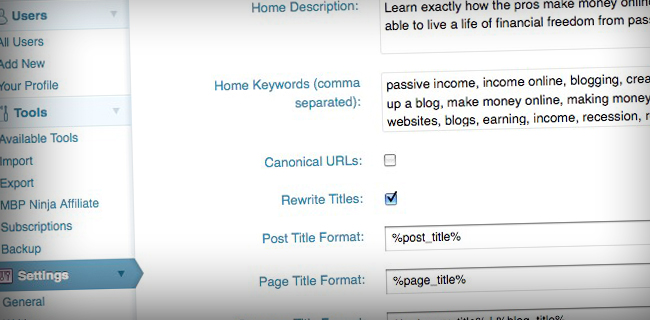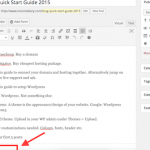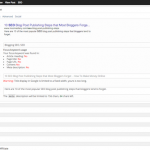
I know, kind of a strange post name, right? Who would want to “Google-Proof” their website? Don’t you want Google to love your website?
The answer is “Yes,” of course you do. What I mean by “Google-Proofing” your website is simply protecting yourself from Google’s algorithm updates — making sure that you never lose any search engine traffic because of an algorithm update.
You are likely aware of Google’s most recent “Panda” update that hammered a lot of huge sites such as EzineArticles, Hubpages, and Mahalo, along with tons of smaller sites (including, unfortunately, one of my own). And I’m sure that at least a few readers of IncomeDiary had their sites hit as well.
The reason for this update was to filter out low quality content from Google’s search results. The reason for this is not to “screw the little guy” or ruin your affiliate earnings — it’s simply a way for Google to help provide it’s customers (meaning, searchers, NOT affiliates or advertisers) with a better search experience. And if they have a better search experience, they are much more likely to use Google again to search — and not defect to another search engine like Bing or Yahoo. And, ultimately, the goal is that the more that people use Google, the more people will click on Google’s ads, making the company more profit.
While this update was a painful experience for a lot of people, it did actually provide some benefits for internet marketers who put in a little extra effort. Specifically, this algorithm update removed a TON of spammy, low quality sites (not every bad site, unfortunately) from the competition. Which means that a lot of keywords that were filled with spammy, low quality sites are now wide open — and ultimately, for the internet marketer who wants to put in a little extra effort to make sure he’s “Google-Proofed,” ripe for the picking.
The truth is this: this is not the last time Google is going to make an algorithm update. If you do not have your site setup properly, then you are putting yourself at risk of losing search engine traffic at any time, basically at the whim of Google. While one might argue that if you are relying on search engine traffic, you are always at the “whim” of Google and are putting yourself at risk — there are ways to mitigate that risk, and prevent your site from being hammered from any future algorithm updates. Not every site got hit by the Panda update — IncomeDiary’s search engine traffic actually has doubled in the past 6 months from 5,000 search engine visitors a week to 10,000 — so what made these sites protected? And what will keep these sites protected in the future?
It all boils down to just a few, specific things.
Guidelines For “Google-Proofing” Your Website
1. More Emphasis on Social Factors
While the jury is still out on Google +1’s success, you better believe that Google is moving more toward social factors like Facebook likes, Tweets, Stumbles and +1’s. If Google making it’s own social network isn’t proof enough to you that Google is focusing more on the social aspects of search, then I don’t know what is. It’s extremely important to have these social buttons on your site, and you want to ESPECIALLY make sure that you have the +1 button setup in a prominent spot so that you can get the most +1’s possible. Google has experimented a ton with re-ranking sites based on how many +1’s they have – and it’s likely that they will continue to put heavy emphasis on boosting sites that have a lot of +1’ed content. Make sure that you are getting your subscribers to “Like” and “+1” your content — do NOT leave this out of your strategy.
2. NO Duplicate Content
This has been a rule for a long time now, though it seems that Google is now much more stringent and penalizing sites more heavily for duplicate content. So make sure your SEO strategy doesn’t rely around duplicate, automated content — because this will NOT work and only get your site penalized in the search engines.
3. LONG, High Quality Content
According to my buddies over at SERPIQ.com, they ran a study of 15,000 keywords, and found that on average the top 10 results for those 15,000 keywords all had over 2,000 words of content on the page that ranked in the top 10. One thing to keep in mind is that it’s not necessarily one 2,000 word article — but 2,000 words of content on the entire page. So for example, on IncomeDiary’s homepage — there are paragraph long previews of posts that add up to over 2,000 words of content — so to Google, it’s a page with over 2,000 words of content. The survey data doesn’t lie – longer content ranks better. Plain and simple. Just make sure that it’s high quality, (i.e. written over an 8th grade level), it has different forms of media if possible (videos, images), and that it gets shared (like I mentioned before!). Ultimately Google wants you to put REAL EFFORT into providing a high quality experience for your website visitors. If you can do that – they WILL reward you with more search engine traffic.
4. Strong Emphasis on On-Site Fundamentals
Again, as Google’s algorithm’s are constantly refined, high quality, useful, and interesting content is always going to be rewarded. However, it’s impossible to have your high quality and interesting content rewarded if your on-site SEO is setup improperly. If Google cannot interpret your content and know exactly what keywords to give you traffic for, then your high quality content will get you ZERO search engine traffic. And sticking to these strong on-site fundamentals will help make sure that your site not only GETS ranked, but it KEEPS it’s rankings through all future algorithm changes.
The real truth is, if you want to rank for high traffic, high profit keywords, you need to make sure that your on-site SEO is up to par (because your competition’s DEFINITELY is). Without proper on-site SEO, you’re building your site without a proper foundation.
“So, where can I learn more and make sure that I’m setting up my site for success in the long term?”
Well, we’ve got a program called The WordPress SEO Blueprint in which my business partner (Tom Lambert) and I go through everything we do and have done to get our WordPress sites ranking at the top of the search engines — and how you can do the same with your own WordPress sites. It’s an incredibly useful and easy to follow resource that will have you ranking your sites at the top of the search engines in no time — and I promise that it will help fully protect you from future algorithm updates.
So check it out, and let us know if you have any questions in the comments section!













